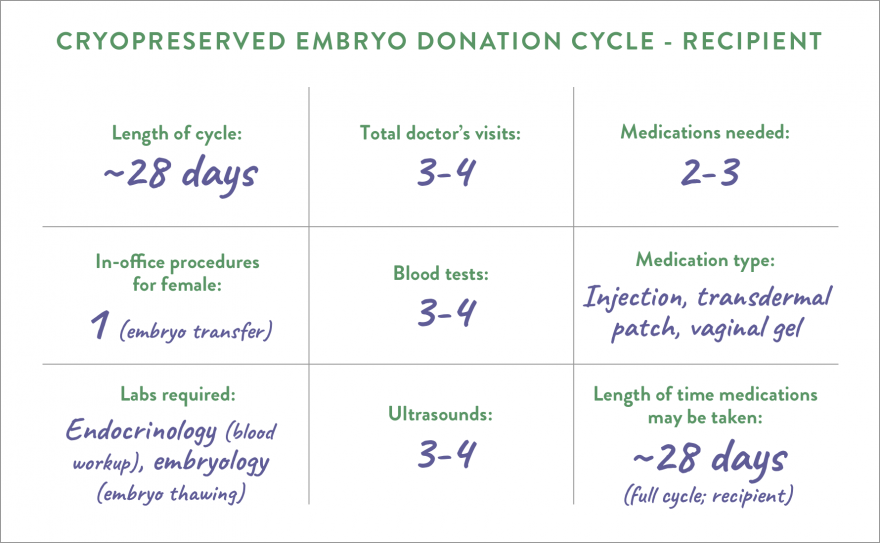My Fertility Story provides customized fertility and family-building resources to support you as you navigate your unique path to parenthood.
ARE DONOR EMBRYOS THE RIGHT CHOICE FOR YOU?
*Data from the SART 2020 Preliminary National Summary Report, accessed July 13, 2022.
EMBRYO DONATION OPTIONS
Currently there are two kinds of embryo donation available:
- Anonymous donation
In this type of donation, there will be no contact between you and the donors of the embryo. Your preferences for physical characteristics (like height, hair color, and eye color) and ethnicity will be part of the selection process.
- Known donation
Known donors may want to know details about you and whether a pregnancy was successful, and may want updates on the child. Remember, similar to adoption, your child from embryo donation may have siblings living with another family.
No matter which option you choose, pretreatment counseling will be an important part of the process. A trained professional can guide you through the many emotions you may experience, including grief over not having your own genetic child, anxiety over a failed pregnancy, and what to tell your future child and extended family.
HOW AN EMBRYO DONOR CYCLE WORKS
According to the SART National Report, in 2019, 43.5% of women who received a donor embryo had a baby.
Many factors can affect this number, including the freezing method, the age of the woman who donated the egg, and the quality of the embryos. Techniques have improved, so embryos frozen in the last ten years may have increased success rates.
Studies show using frozen embryos does not affect the growth or health of your child in the future.






